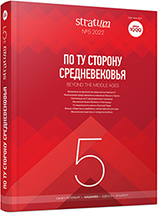Казнь в безлунную ночь: к вопросу о сакральности приведения в исполнение смертного приговора в Орде
Execution on a Moonless Night: on the Question of the Sacredness of the Execution of a Death Sentence in the Golden Horde
Author(s): Yuriy V. SeleznevSubject(s): History, Ethnohistory, Middle Ages, 13th to 14th Centuries
Published by: Издательский дом Stratum, Университет «Высшая антропологическая школа»
Keywords: Mongol Empire; Ulus of Jochi; Golden Horde; execution; death sentence; full moon; new moon;
Summary/Abstract: The carrying out of the death sentence is a crossing of the line between the world of the living and the world of the dead. In different societies, attitudes towards the afterlife, including the death penalty, have different manifestations. The article provides observations of the timing of the death penalty in the Mongol Empire and the Ulus of Jochi (Golden Horde). These observations suggest that the death penalty was carried out at night on the waning moon with a tendency to carry out the execution during the New Moon. This is due to the attitude of nomads to the world of the dead and has a sacral cultic meaning: during a violent collision with the world of the dead the Sun should not be in the sky fully; the Moon should be seen as little as possible or there should be a full Moon in the sky.
Journal: Stratum plus. Археология и культурная антропология
- Issue Year: 2022
- Issue No: 5
- Page Range: 109-114
- Page Count: 6
- Language: Russian
- Content File-PDF

